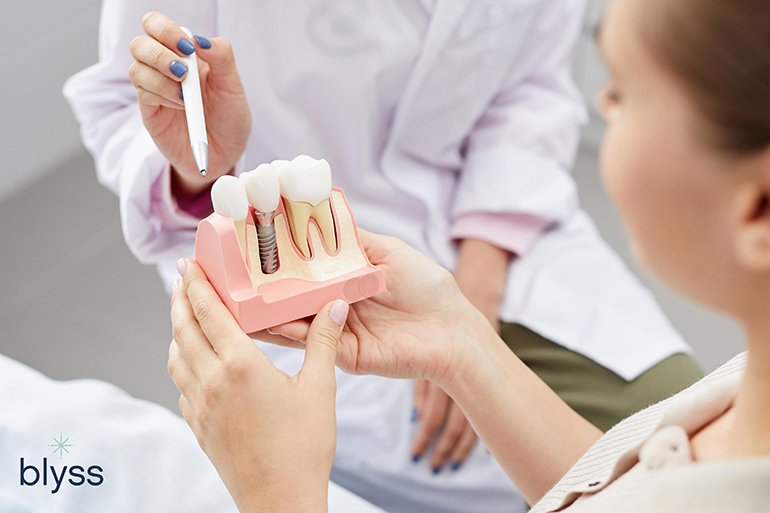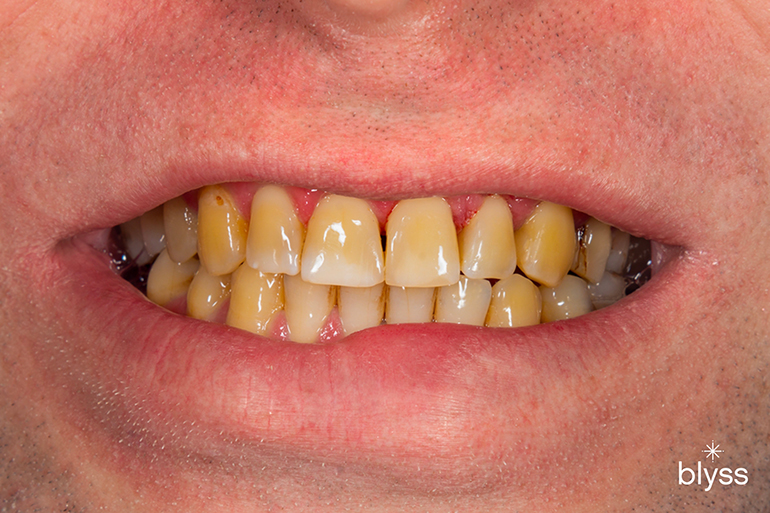How long do dental implants last? What factors influence their lifespan? And what can you do to ensure your dental implants last as long as possible?
According to The American College of Prosthodontists, more than 36 million Americans do not have teeth, and 120 million people in the U.S. are missing at least one tooth. These numbers are expected to grow in the next two decades. This means more and more people will seek solutions to replace missing teeth.
Dental implants are considered a popular and permanent solution to tooth loss because they are anchored into the jawbone and provide a strong foundation for artificial teeth, functioning just like natural teeth. They are small titanium posts surgically placed into the jawbone to replace missing teeth.
There are many reasons why you might need dental implants. Some common causes include:
- To replace one or more missing teeth
- To support a dental bridge
- To support dentures
- To improve the appearance of your smile
- To improve your speech
- To improve your oral health
If you’re considering dental implants, it’s important to have a basic understanding of how they work and what the procedure entails. Read this article to learn more about the dental implant stages and its healing process.
The Average Lifespan of Dental Implants
Dental implants are designed to be a long-term solution for missing teeth. With proper care, most dental implants can last up to 20 years with studies showing that they may last even longer.
Now, I do not take that lightly when I say to my patients that they last that long. Let me talk to you about facts and figures.
An extensive 20-year study of 12,500 dental implants shows that dental implants had a 93% survival rate in 17 years. In this study, about 2% of dental implants failed in the first year. Over the next sixteen years, the survival rate dropped by only 5%.
An even longer (but smaller) 30-year study shows that implants survive long after 20 years. And what’s remarkable in this study is that not a single dental implant failed in all 30 years among the patients, so that means the survival rate is 100%.
Remember that most people who get dental implants are in the 50+ age group. The average lifespan in the US is around 80 years. Considering the age, the average lifespan of Americans, and the lifespan of an implant, people who get dental implants will have them for the rest of their lives without exceeding the 30-year lifespan.
Remember, dental implant technology is only slightly more than 50 years old. Still, the experience gained from over 50 years of research has taught dentists how to refine products, procedures, and aftercare, meaning that dental implants now last longer than dental implants first introduced them.
5 Factors That Affect Dental Implant Lifespan
According to the American Association of Oral and Maxillofacial Surgeons (AAOMS), dental implants have a 95% average success rate, but their success depends on different factors.
Factor 1. The Level of Expertise
Choosing a skilled dentist is crucial to the success of your dental implant procedure.
A skilled dentist has the experience and training necessary to place the implant in the optimal position for success. They will also take into consideration the overall health of your mouth before moving forward with the procedure.
On the other hand, a less experienced dentist may not be as meticulous. This is why it is important to do your research and choose a reputable, experienced dentist for the procedure. Otherwise, you may end up with dental implant complications that can be both painful and expensive to fix.
A dental implant that fails can easily double or triple your cost due to rework.
Dental Implant Placement Tip: Do you need to get your dental implant surgery with an Oral Surgeon? Oral Surgeons have extensive residency training in more complex mouth surgeries such as the rebuilding of the jaw during an accident. But they don’t necessarily get extensive dental implant training right off school or residency. Just like regular dentists, they still have to get extra courses and hands-on training to place implants successfully. Oral Surgeons also tend to be more expensive. They also prefer that your general dentist complete your implant procedure, such as installing your implant crowns or full mouth prosthesis. You can have equal or better success with a skilled general dentist who can do the procedure from start to finish while emphasizing the aesthetics and outcome of the teeth.
Here are the possible consequences when choosing the wrong dentist.
You Might Not Get the Results You Want
One of the most important things to consider when choosing a dentist for your dental implant surgery is whether or not they can give you the results you want. This includes everything from the brand and size of the implants to their placement of them in your mouth. If you choose a dentist who doesn’t have experience with the specific type of dental implants you’re looking for, you might not be happy with the final results.
Complications Could Arise
Complications are always a possibility with any type of surgery, but they’re very rare with dental implant surgery. There are many different variables that can affect the outcome of the surgery, such as bone density and gum health. If you choose a less-than-qualified dentist, you increase your risk of complications arising during or after your surgery.
The surgery is typically straightforward, but when done wrong, you may experience complications from dental implants if your dentist:
- Places the implant in the wrong location which may possibly cause injury
- Uses an implant that’s the wrong size for your jawbone
- Damage to the surrounding teeth during surgery
Any of these mistakes can cause dental implant complications, such as pain, infection, nerve damage, and sinus problems. In some cases, the entire implant may need to be removed and replaced.
It Can Be Expensive to Fix the Implant Failure
If problems arise from subpar dental implants, it will cost you even more money to get them redone or fixed than they would have in the first place. In the long run, it is always cheaper and easier to do things right the first time. This is definitely true when it comes to something as important as your teeth.
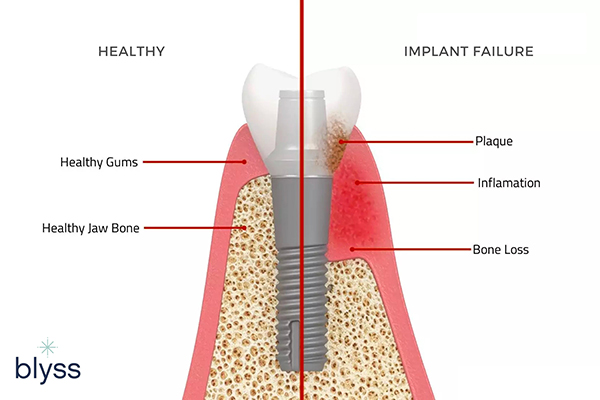
Dental implant failure can be costly, both in terms of finances and health. Unfortunately, many dental implant failures occur as a result of inexperience on the part of the dentist.
What to Look for in a Dentist
When choosing a dentist for dental implants, make sure they have:
1. Extensive training and experience in dental implants: Ideally, your dentist should keep up with the latest courses and technology related to the placement of dental implants. Ask about their training and experience specifically with placing dental implants.
2. A good success rate: Ask your dentist what their success rate is with dental implants. While there’s no guarantee that your surgery will be complication-free, you’re more likely to have a successful surgery with an experienced and reputable dentist.
3. Guarantees: What happens is the implant is rejected by the body in the first 3 months. What happens if the implants fail within a year? Most implant failures happen during the first 3 to 12 months of installation. Ask your dentist if something goes wrong. Do you have to pay for another implant surgery?
Tip: Ask your dentist if there are any guarantees on the implants. At Blyss Dental, we provide a 5 Year Guarantee on our implant placements. We redo the work for free if the implant fails during this period.
4. Positive reviews: Look for online reviews from previous patients. You can also ask your family and friends if they have any recommendations for a good dentist in your area. Once you’ve found a few potential dentists, schedule consultations so you can learn more about their training, experience, and approach to dental implants before making a final decision.
Choosing a skilled dentist may cost a bit more upfront, but it’s worth it in the long run. After all, you want your implants to last a lifetime!
Factor 2. Bone Density
When considering dental implants, one of the things your dentist will assess is the density of your bones. This is because bone density plays a role in how long dental implants last.
In order for dental implants to be successful, there must be enough bone in the jaw to support them. If you don’t have enough bone density in your jaw, your body will not be able to support the implant fixtures. As a result, the implants will fail.
A study made in 2014 proved this to be true. Not only success but also the survival rate of dental implants depend heavily on bone density. According to this study, there are four types of bone qualities: type I, type II, type III, and type IV wherein, type 1 is the densest and most well-protected with a survival rate of 97.6%, while type 4 is the least with 88.8% survival rate.
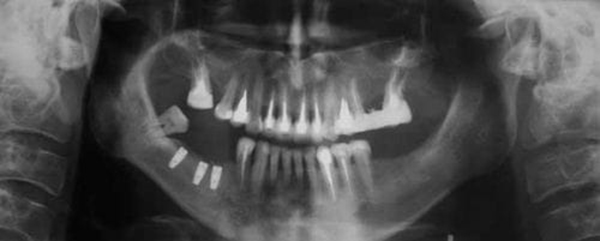
Inadequate bone density may lead to implant failure, so it is important to have a healthy jawbone before surgery. I can help you determine whether you have enough bone for implants and what steps you can take to improve your bone health.
To determine if you have enough bone density, your dentist takes x-rays and impressions of your mouth to get a clear picture of your mouth structure and overall health during the initial consultation. From there, your dentist will develop a treatment plan tailored specifically for you.
Dental Implant Placement Tip: Ensure that your dentist takes a CT Scan (CBCT Scan) to properly plan your dental implant procedures. CT Scan allows the dentist to do a 3D simulation of the implant placement to minimize errors. A dentist that does not use CT scans may be following older techniques of implant placements.
If there is not enough bone, there are a few options: your dentist can perform a bone graft procedure to build up the bone or they can modify the implant placement position.
A bone graft is a surgical procedure where your dentist fills the sockets or remaining holes where the tooth used to be. This procedure rebuilds the jawbone prior to implant placement. Although bone grafts can be time-consuming, they are often essential and a necessary part of any implant process.
Not Enough Bone Density? Know Your Alternatives
Let’s take a look at the common alternatives to dental implants if you don’t have enough density in the jawbone.
Dental Bridges: A dental bridge is a prosthetic device that is used to replace one or more missing teeth. A dental bridge consists of two dental crowns (one on each end) that are anchored in place by one or more false teeth (pontics). One of the benefits of dental bridges is that they do not require any surgery; however, they can be less comfortable than dental implants and may not last as long. You must also have strong and healthy adjacent teeth to support a dental bridge.
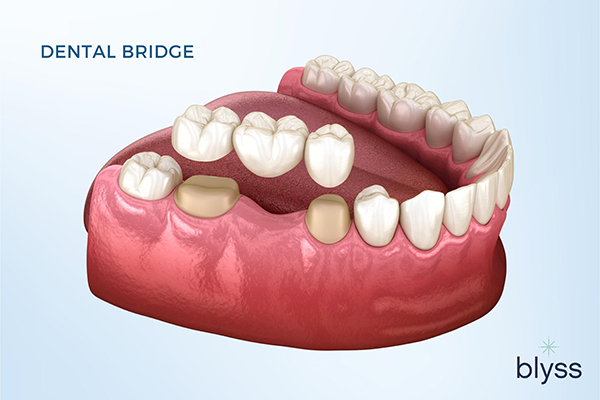
Dental bridges are fully fixed in your mouth, and they won’t slip out or become loose, allowing you to speak and eat easily.
Full-mouth Dentures: Full-mouth Dentures are another popular alternative to dental implants. Dentures are a set of false teeth that rest on the gums and are held in place by either suction or a small amount of denture adhesive. Dentures can be taken out and put back in at any time, making them very convenient. It is recommended when you have lost all teeth, or the existing set needs to be removed due to decay, infection, pain, or other dental issues.
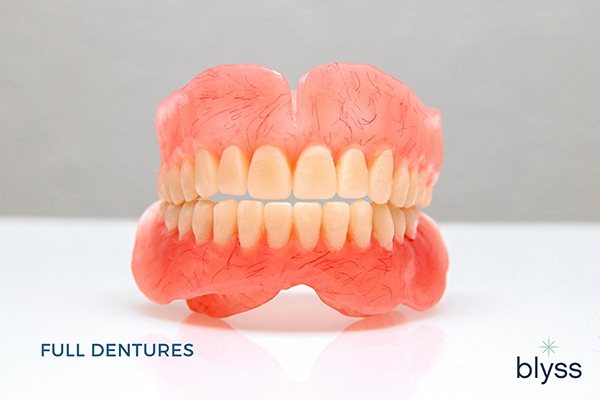
A full upper denture is held in place by forming a seal with the bone ridges, palate (mouth roof), and gums, whereas a full lower denture rests on dental implants (anchors)
Partial Dentures: Partial dentures are much like full dentures; however, they only replace some of your teeth instead of all of them. They consist of a metal or non-metal framework with false teeth attached. The framework of a partial denture attaches to your existing teeth and fills the gaps left by your missing teeth.
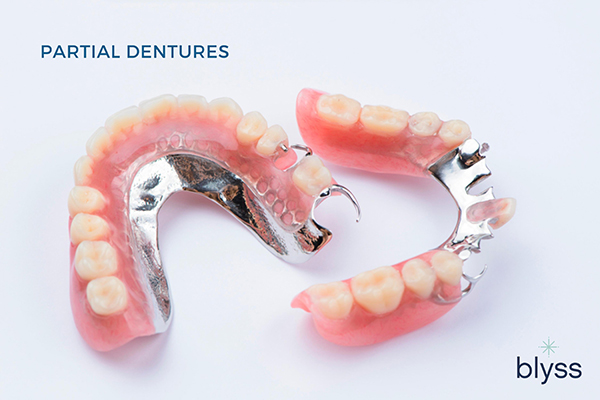
Partial dentures are usually removable and can be taken out for cleaning or at night. They are less expensive than dental implants but may not last as long.
If you don’t have enough density in your jawbone to support dental implants, you don’t need to worry. There are still alternative treatments available that can achieve similar results with dental implants. Talk to your dentist about which treatment option is right for you.
Factor 3. Medical Conditions
Some medical conditions can reduce how long dental implants last. Conditions such as cancer, uncontrolled diabetes, and autoimmune diseases like rheumatoid arthritis and lupus can all cause problems for dental implants.
Cancer
Cancer treatment, such as radiation therapy and chemotherapy, can damage the bones and surrounding tissues. This can make it difficult for the body to heal and may even cause the implant to fail.
Radiation therapy is a common cancer treatment that uses high-energy rays to kill cancer cells. While it is effective at treating cancer, it can also damage healthy cells nearby. This includes the cells in your jawbone that support dental implants.
Chemotherapy is another common cancer treatment that uses drugs to kill cancer cells. It can also damage healthy cells nearby, including those in your jawbone that support dental implants.
Uncontrolled Diabetes
Uncontrolled diabetes can cause damage to the blood vessels and nerves, which can make it difficult for the body to heal. This can put you at risk for implant failure.
Diabetes is a condition that affects millions of Americans. It occurs when your blood sugar levels are too high. Over time, this can damage your nerves and blood vessels. If you have dental implants, this can put you at risk for implant failure.
Autoimmune Diseases
Autoimmune diseases like rheumatoid arthritis and lupus can also reduce how long dental implants last. These diseases cause the body to attack healthy tissues by mistake. This can damage the bones and surrounding tissues, making it difficult for the body to heal. If you have dental implants, this can put you at risk for implant failure.
Factor 4. Dental Implant Brand
Not all dental implants are created equal. Some brands of dental implants have been shown to last for over 25 years, while others may only last for 5-10 years.
Your dental implants are a big investment. And like any investment, you want to make sure you’re getting the most for your money. But how can you be sure you’re choosing the right dental implant brand? And once you’ve made your decision, how do you know that your implants will last?
How to Choose the Right Brand
The lifespan of your dental implants depends on two things: the quality of the implant itself and the quality of care you receive during and after surgery. While there are many factors that go into choosing the right dental implant brand, here are four of the most important:
Secured FDA Approval: The first thing to look for when choosing a dental implant brand is FDA approval. The FDA regulates all medical devices, including implants, to ensure they are safe and effective for use in humans. Any reputable dental implant brand will have FDA approval.
Backed by Research: You want to choose a brand that is backed by scientific research. This means looking for clinical studies or other data that support the claims made by the manufacturer. Research helps to ensure that the implant you choose is safe and effective.
Offer Guarantees: A good dental implant brand will offer some sort of guarantee on their products. This may be a lifetime warranty or a 10-year warranty. Either way, it’s important to choose a brand that stands behind its products in case of any defects or problems down the road. Straumann, for instance, provides its clients with a lifetime guarantee in case of failure or breakage of the dental implant after all dental restorations have been completed and finalized.
Proven Track Record: When it comes to tracking records, you want to choose a brand that has been around for a while and has a good reputation. This means checking reviews, talking to your dentist, and doing your own research. Hearing from other patients who have used a particular brand can give you insights into things like product quality, customer service, and overall satisfaction levels. A brand with a good track record will have happy customers and will be recommended by dentists.

At Blyss Dental, I use Straumann and Neodent dental implants for most of my patients to deliver predictable, stellar, and superior results that all my patients deserve. With Straumann, I am always confident that I’m getting the best deal in terms of superior material grade and performance, backed by decades of clinical data.
To learn more about dental implant brands, check out this article: Not All Dental Implants Are The Same: Know Why The Best Dentists Use Top Implant Brands
Factor 5. Lifestyle and Habits
Dental implants are designed to last a lifetime, but that doesn’t mean they’re indestructible. Just like your natural teeth, dental implants are susceptible to decay and gum disease if they’re not properly cared for.
It is important to remember that they are not invincible and there are certain things that can contribute to dental implant failure. That’s why I suggest that you do a reality check and see if there are any lifestyle habits that you do that can shorten the lifespan of your dental implants and cause them to fail.
How Unhealthy Lifestyles Shorten the Lifespan of Dental Implants
It’s no secret that certain lifestyle choices can lead to health problems down the road. And when it comes to dental implants, these unhealthy lifestyle choices can shorten their lifespan and lead to complications. Some of the most common unhealthy lifestyle choices that can affect dental implants include
Smoking – Smoking leads to stained teeth, gum disease, and even tooth loss. Smokers are three times more likely to lose their implants than non-smokers. If you do smoke and are considering dental implants, quitting smoking is a necessary first step.
Excessive Alcohol Consumption – Drinking alcohol in moderation is fine, but excessive alcohol consumption can lead to a host of health problems. This is because alcohol dehydrates the body and dries out the mouth. A dry mouth creates an environment where bacteria can thrive, which can lead to gum disease and implant failure. In addition, heavy drinking can weaken the immune system, making it more difficult for your body to fight off infection
Poor Oral Hygiene – Poor oral hygiene is one of the leading causes of gum disease. And as we’ve already established, gum disease is one of the leading causes of dental implant failure. Be sure to brush and floss twice a day and see your dentist regularly for cleanings and checkups.
Unhealthy Eating Habits – What you eat also plays a role in the health of your teeth and gums—and therefore the lifespan of your dental implants. A diet high in sugar increases the risk of cavities, while a diet high in acid can wear down tooth enamel. Eating hard foods (like candy or nuts) can also damage dental work, including implants. So, it’s important to eat a balanced diet and avoid sugary or acidic foods if you have dental implants.
How Bad Habits Shorten the Lifespan of Dental Implants
In addition to unhealthy lifestyles, there are also certain bad habits that can shorten the lifespan of dental implants. Some bad habits that can affect dental implants include:
Teeth Grinding – Teeth Grinding also known as bruxism has been defined by the American Academy of Sleep Medicine as the “repetitive jaw muscle activity characterized by the clenching or grinding of teeth and/or bracing or thrusting of the mandible.” It can happen during the day or at night, and it can put a lot of stress on the teeth and jaw.
Bruxism is a condition that can be caused by stress, anxiety, or even sleep disorders. And while it may not seem like a big deal, it can actually cause serious damage to your teeth. In a clinical research conducted in Brazil, researchers found that patients who grind their teeth or clench their jaws suffer from higher dental implant failure rates than those that don’t.
When you grind your teeth, you put stress on the bones and tissues around them. Over time, this can lead to damage and even loss of bone tissue. If you have dental implants, this can put you at risk for implant failure.
Clenching Your Jaw – Clenching or clenching your teeth puts unnecessary pressure on your jawbone—which can eventually lead to implant failure. If you find yourself clenching or clenching during the day, try to relax your jaw muscles and avoid putting unnecessary pressure on your implants.
Using Your Teeth as Tools – Your teeth are not meant to be used as tools. But many people do just that—whether it’s opening a bottle or biting their nails. This can put unnecessary stress on your teeth and lead to chips, cracks, and even breakage. And if you have dental implants, this can put you at risk for implant failure.
The Takeaway
With 50 years of research by dedicated implantologists, dentists have now proven that the key to achieving longevity of dental implants is a combination of high-quality products, experienced implant dentists, and frequent dental health checks.
By understanding the factors that affect the lifespan of dental implants, you can be sure to take the necessary steps to ensure the longest lifespan possible for your dental implants. And if you do experience implant failure, be sure to see your dentist right away so they can help you find the best solution for your individual needs.
At Blyss Dental, I want our patients to have all the information they need to make the best choice for their smile. Contact us today to book a free consultation and see if dental implants are right for you!
8 Sources Cited From
- Facts & Figures | American College of Prosthodontists. (n.d.). Retrieved November 2, 2022, from https://www.gotoapro.org/facts-figures/
- AAOMS. (2021b, September 13). Dental Implant Surgery | Installing Dental Implants | AAOMS. AAOMS Oral and Maxillofacial Surgeons. https://myoms.org/what-we-do/dental-implant-surgery/
- Turkyilmaz I, Tözüm TF. 30-Year Outcomes of Dental Implants Supporting Mandibular Fixed Dental Prostheses: A Retrospective Review of 4 Cases. Implant Dent. 2015 Oct;24(5):620-4. doi: 10.1097/ID.0000000000000321. PMID: 26288163.
- Setzer, F. C., & Kim, S. (2014). Comparison of Long-term Survival of Implants and Endodontically Treated Teeth. Journal of Dental Research, 93(1), 19-26. https://doi.org/
10.1177/ 0022034513504782 - Life Expectancy in the U.S. Dropped for the Second Year in a Row in 2021. (n.d.). Retrieved November 2, 2022, from https://www.cdc.gov/
nchs/pressroom/ nchs_press_releases/ 2022/ 20220831.html - Goiato, M. C. (2014, September 1). Longevity of dental implants in type IV bone: a systematic review. International Journal of Oral and Maxillofacial Surgery. https://www.ijoms.com/article/S0901-5027(14)00097-6/fulltext
- International Classification of Sleep Disorders. 3rd ed. Westchester, Darien, Illinois: American Academy of Sleep Medicine; 2014. American Academy of Sleep Medicine. Sleep related bruxism.
- Windael, S., Vervaeke, S., Buyser, S. D., Bruyn, H. D., & Collaert, B. (2020). The Long-Term Effect of Smoking on 10 Years’ Survival and Success of Dental Implants: A Prospective Analysis of 453 Implants in a Non-University Setting. Journal of Clinical Medicine, 9(4). https://doi.org/10.3390/jcm9041056
